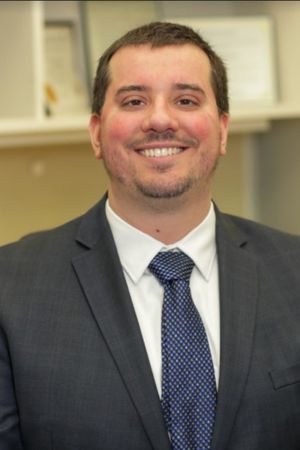The Infamous Conn Story and Social Security Fraud ![the big conn image with silhouette hand grabbing a quarter]()
The Big Conn highlights one very destructive, but also very localized, fraudulent conspiracy enacted by one attorney, one administrative law judge, and two doctors used by the attorney to produce fraudulent reports to supply evidence of disability. As our Indianapolis Social Security attorney has noted previously, in our Big Conn story, the actual incidence of fraud targeting Social Security is very low, estimated at a fraction of a percent. Yet the legitimacy of the vast majority of claims, and the already stringent standard used to establish disability, have not stopped reactionary and harmful changes to how the Social Security Administration considers evidence from doctors.
It used to be that a medical opinion by your treating doctor was given “controlling weight,” meaning that the opinion should more or less be accepted as an explanation of how you’re limited, so long as it was well-supported by the doctor’s notes and consistent with the other evidence in the record. Even if the opinion was maybe not well-supported (for instance, the doctor didn’t explain how they arrived at their opinion) or lacking in consistency (perhaps because a particular condition was only treated by the opining doctor, so wasn’t noted much or at all in other records), the agency would still apply all the factors they considered when assessing the reliability, or “weight,” of a medical opinion.
Members of the conspiracy Eric Conn was a part of were indicted in April 2016, and Conn himself entered a guilty plea in March 2017. New regulations were published in January 2017, going into effect in March of that year, the same month of Conn’s guilty plea, that eliminated the “controlling weight” rule. Now, any opinion would be weighed according to the same factors, regardless of the source. At face value, this rule seems equitable and reasonable. Those factors have remained more or less the same: supportability, consistency, the existence, and nature of a treating or examining relationship, specialization, and other factors like familiarity with other evidence in the claim or an understanding of the disability program’s rules. The new regulations also reflected changes in the healthcare industry, broadening the sorts of medical opinions to be considered so that they included more than just doctors but any licensed healthcare worker. However, the changes weren’t simply fair-minded updates. Under the new regulations, supportability and consistency are the most important factors, so much so that an administrative law judge can ostensibly only discuss these two factors.
How Is That a Problem?
Assume that a medical reviewer looks over the records submitted in your case. They complete a checklist about what limitations they think are supported. They maybe provide a paragraph or two citing findings in the record they think to support their opinion. They’ve never looked at you. Maybe they have the benefit of an examining doctor hired by the agency to look you over, in a single session that generously might last 30 minutes to an hour, who has provided their own paragraph-length statement of how they think you’re limited. All too often, these simplistic and short opinions are found to be “consistent” and “supported,” while treating sources, who have observed you and attempted to actually treat you for often months or years, are relegated to “unpersuasive” status because the administrative law judge can point to negative clinical findings (in other words, findings from an exam that do not indicate the presence of an abnormality). And since the adjudicators only need to “explain” what they found to be supportable or consistent, they don’t even have to explicitly consider the other factors. All too often, adjudicators produce denials of benefits based on the quick reports generated by these consulting doctors. The new regulations have been weaponized against claimants, at least by some decision-makers. Even if a claimant successfully argues that an administrative law judge wrongly applied the rules or provided only the most simplistic and conclusory of factor discussions such that the resulting decision cannot even be reviewed to understand how it was made, this potential success (far from a sure thing) would only come months or even years further down the line after the claimant has already waited perhaps two years just to get through the appeals process to the hearing.
It is not as though the opinions of these doctors working for the Social Security Administration are all that incredibly supported, either. One wonders how an administrative law judge can so often conveniently determine that the state doctor's opinion is more supported or consistent than the treating doctor when they’re often looking at the same evidence (or when the treating doctor has more evidence simply by way of producing the opinion more recently) and producing similar-sized reports. A reasonable answer to this question might be that many of the agency’s factfinders at this point have a deeply skeptical view of most claimants and their medical providers, and a highly publicized but anomalous fraud case could at least partially explain this attitude.
While Eric Conn is not entirely responsible for the sea change of rules, regulations, and even attitudes within the Social Security Administration, it is hard not to see an overly reactionary response to the uncovering of his criminal conspiracy. The above example about medical experts is only one of several examples of a public benefits process becoming more and more demanding, time-consuming, and onerous for all applicants. And this means many hard-working individuals who have become sick or injured such that they can no longer work are not able to access the benefits they are entitled to—at least not without a years-long, exhausting journey.
Speak with Our Indiana Social Security Lawyer
At Keller & Keller, we are one of the top-rated Indianapolis disability attorneys Hoosiers call on to help them obtain the Social Security benefits they deserve. Thankfully, we bring all the essentials to the table: experience, communication skills, a proven track record, and, most importantly, a commitment to our client's well-being.
You can find out whether you have a valid case at no cost to you. That’s because we offer free consultations. To request a free consultation with our team, reach out by calling 1-800-253-5537 or filling out the online contact form below. We have been proudly servicing clients throughout Indianapolis, Granger, and the surrounding areas.



